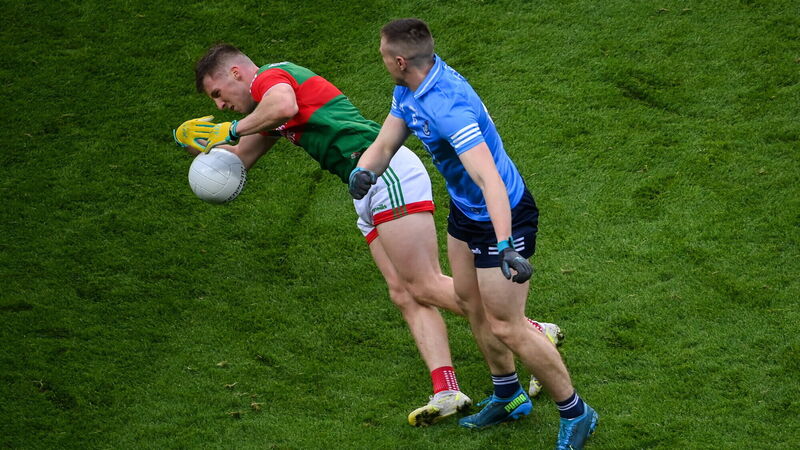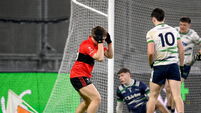Eimear Ryan: We lionise 'shoulders' so there’s no point in acting appalled now

Eoghan McLaughlin falls to the ground after a challenge from Dublin’s John Small that left the Mayo man with a broken jaw. The GAA has created the circumstances in which this type of dark arts strategy is rewarded year after year, argues our columnist.
Shoulder to shoulder. It’s not just a lyric from a rugby anthem, but a GAA rallying call. Almost a way of life. You see it all the time: Players halted by the referee’s whistle after making a tackle, then turning to him to protest. Shoulder to shoulder, ref! Pointing at or patting the joint in question really brings the point home.
Maybe, like me, you’ve watched a game of hurling or football in the company of someone not brought up in the GAA, and they’ve raised an eyebrow regarding a particular tackle. Maybe someone was in possession of the ball, edging the sideline or endline, trying to keep it in play, and they were unceremoniously sent sprawling to the cheers of the crowd. More than that, they’re penalised for being upended: Possession reverts to the other team. “Oh, don’t worry about it,” we say to our newbie friend, quickly disabusing them of their qualms. “It was shoulder to shoulder.”











